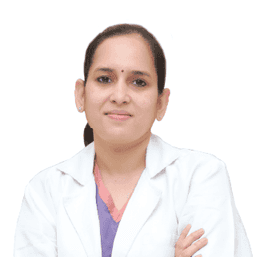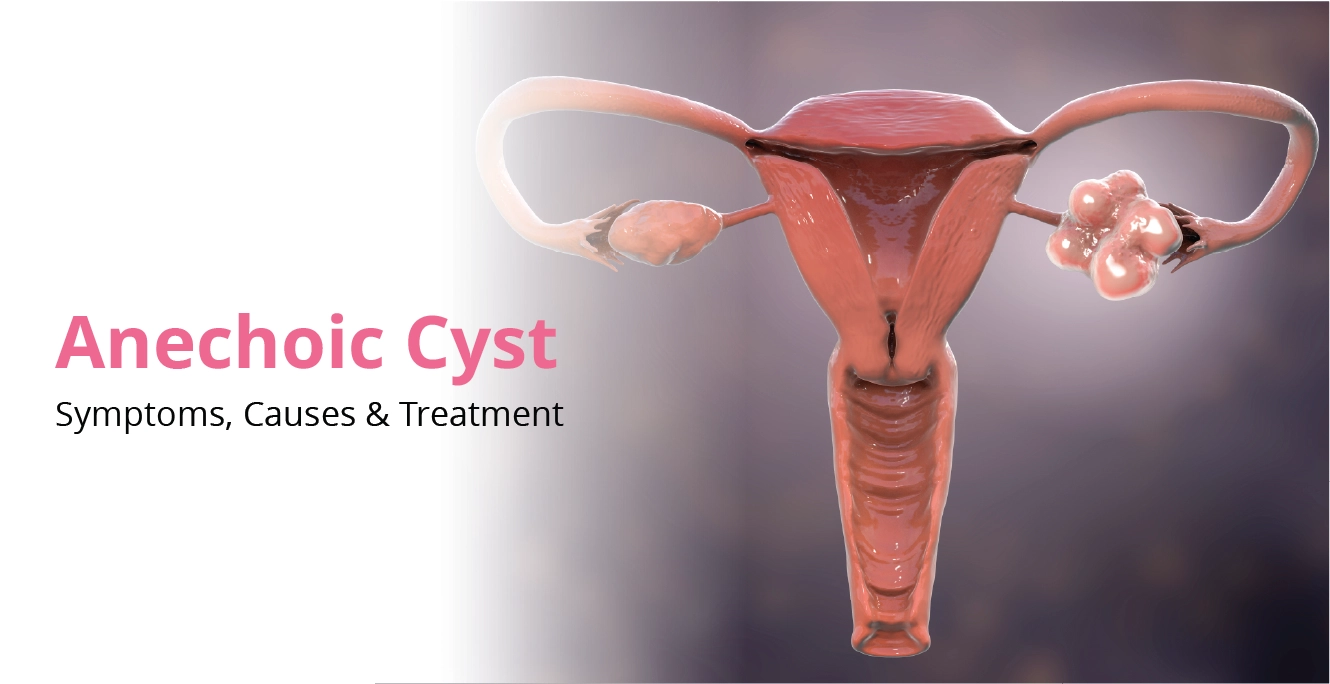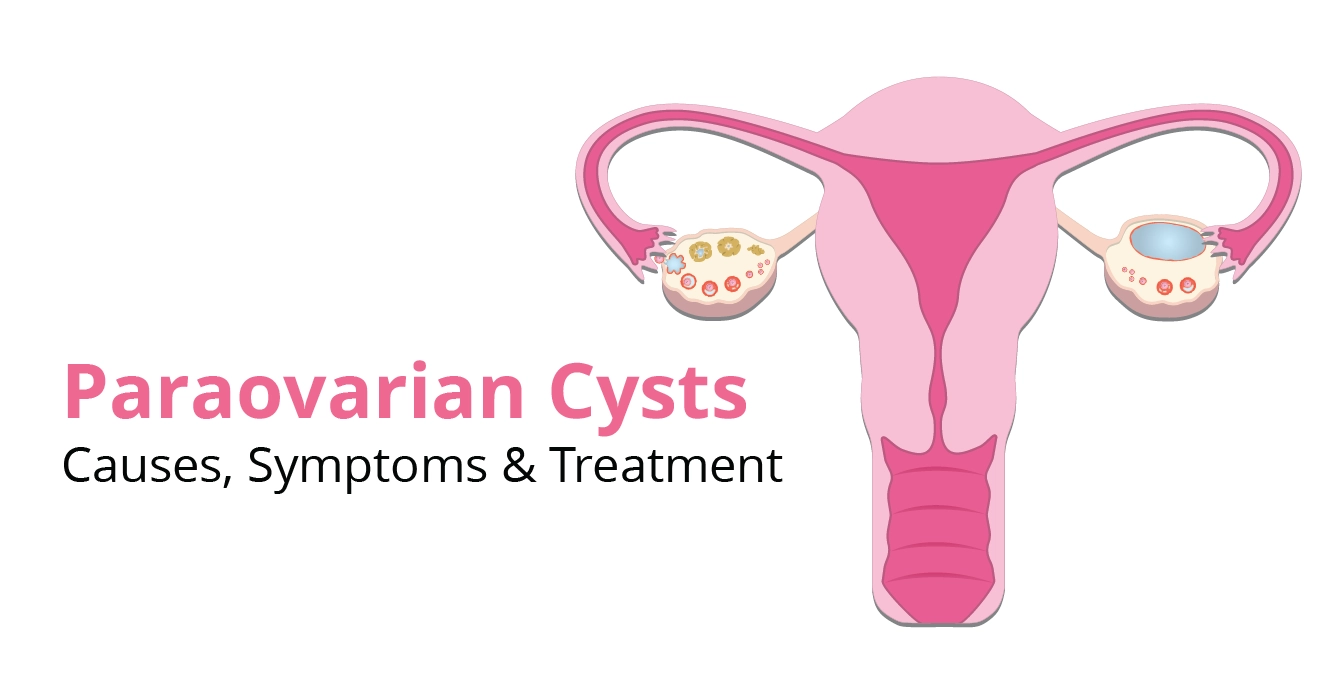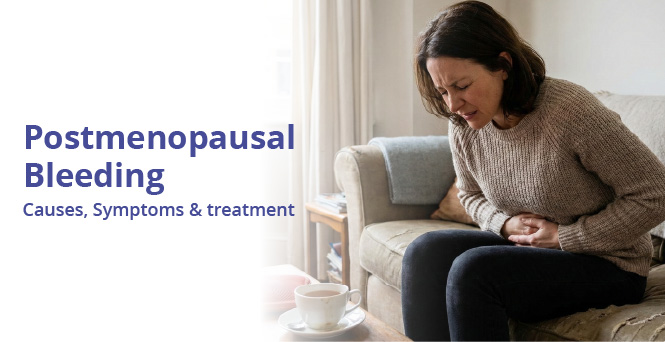
What is the Difference Between PCOS and PCOD

Table of Contents
Key takeaways
PCOS and PCOD are similar yet distinct conditions affecting women’s reproductive health.
-
Similarities: Both involve hormonal imbalances, ovarian cysts, lifestyle disorders, and genetic factors.
-
Differences: PCOS involves metabolic disorders, higher androgen levels and broader health implications.
-
Common symptoms: Irregular periods, hirsutism, acne, and weight gain.
-
PCOS symptoms also include fatigue, depression, and increased risks of diabetes and heart disease.
-
PCOS significantly impacts fertility compared to PCOD.
-
Early diagnosis, lifestyle changes, and medications are crucial for managing this condition.
Introduction
As a woman, you may have heard the terms Polycystic Ovary Syndrome (PCOS) and Polycystic Ovary Disease (PCOD) used interchangeably, but did you know that they are actually two distinct conditions? While both PCOS and PCOD involve the ovaries and can cause similar symptoms, understanding the key differences between them is crucial for proper diagnosis and treatment. In this comprehensive guide, we’ll delve into the intricacies of these conditions, helping you navigate your reproductive health journey with clarity and confidence.
What is PCOD?
PCOD is a condition characterised by the presence of multiple small cysts in the ovaries. These cysts are actually immature or partially mature eggs that fail to be released during ovulation. As a result, women with PCOD often experience hormonal imbalances, particularly an excess of androgens (male hormones).
It is important to note that while PCOD can cause discomfort and impact a woman’s quality of life, it is generally considered a milder condition compared to PCOS and can often be managed through lifestyle modifications.
What is PCOS?
PCOS is a more severe endocrine disorder that affects women of reproductive age. Like PCOD, PCOS is characterised by the presence of multiple small cysts in the ovaries. However, the underlying cause of PCOS is a complex interplay of hormonal imbalances, insulin resistance, and inflammation. Women with PCOS typically have higher levels of androgens, which can interfere with the normal development and release of eggs from the ovaries.
PCOS is a more serious condition that requires comprehensive management to prevent long-term health complications and improve overall well-being.
Diagnosing PCOD and PCOS
The diagnostic criteria for PCOS and PCOD differ significantly, reflecting their distinct clinical presentations and underlying mechanisms.
PCOS Diagnostic Criteria
PCOS is diagnosed primarily using the Rotterdam criteria, which require the presence of at least two of the following three features:
- Oligo-anovulation: Irregular or absent menstrual cycles.
- Hyperandrogenism: Clinical symptoms (like hirsutism and acne) or biochemical markers indicating elevated androgen levels.
- Polycystic ovarian morphology (PCOM): Identified through ultrasound, showing 12 or more follicles measuring 2-9 mm in diameter or increased ovarian volume.
Additionally, other conditions that can mimic PCOS symptoms must be excluded, such as thyroid disorders and adrenal hyperplasia
PCOD Diagnostic Criteria
In contrast, PCOD is diagnosed primarily through ultrasound imaging that reveals multiple cysts on the ovaries. While some patients may experience menstrual irregularities, they typically do not exhibit the same degree of hormonal imbalance seen in PCOS.
In summary, while both conditions involve ovarian cysts, PCOS is characterised by hormonal imbalances and requires a broader set of diagnostic criteria compared to PCOD, which focuses mainly on ultrasound findings.
Despite its name, many women diagnosed with PCOS do not actually have polycystic ovaries. The diagnosis requires meeting only two out of three criteria: androgen excess, irregular menstrual cycles, or the presence of multiple follicles on the ovaries. This misunderstanding can lead to misdiagnosis and unnecessary anxiety for women who may have symptoms but lack cysts.
Symptoms of PCOD and PCOS
While PCOD and PCOS share some common symptoms, the severity and additional complications can differ between the two conditions. Let’s take a closer look at the symptoms associated with each:
PCOD symptoms
- Irregular or missed periods
- Excess facial and body hair growth
- Acne, particularly on the face, chest, and back
- Difficulty conceiving (subfertility)
- Ovarian cysts detected on ultrasound
- Elevated levels of male hormones (androgens)
PCOS symptoms
- Irregular, infrequent, or prolonged menstrual cycles
- Excess hair growth on the face, chest, back, and abdomen
- Acne and oily skin
- Weight gain and difficulty losing weight
- Thinning hair or male-pattern baldness
- Infertility or difficulty conceiving
- Darkening of the skin, particularly in the neck creases, under the breasts, and in the groin area
- Skin tags
- Fatigue, mood changes, and depression
It is essential to consult with a doctor if you experience any of these symptoms, as they can help determine the underlying cause and develop an appropriate treatment plan.
Causes of PCOD and PCOS
Both PCOD and PCOS are rooted in hormonal imbalances, but the underlying causes and contributing factors can vary between the two conditions.
PCOD causes
- Hormonal imbalances, particularly an excess of androgens
- Poor lifestyle choices, such as an unhealthy diet and lack of physical activity
- Genetic factors, although the exact role of genetics in PCOD is less understood compared to PCOS
PCOS causes
- Hormonal imbalances, especially an impaired hypothalamic-pituitary-ovarian (HPO) axis
- Insulin resistance, which can lead to high insulin levels and contribute to androgen excess
- Chronic low-grade inflammation
- Strong genetic component: women with a family history of PCOS are more likely to develop the condition
- Lifestyle factors, such as a diet high in processed foods and refined carbohydrates, lack of physical activity, smoking, and excessive alcohol consumption
Difference between PCOD and PCOS
While PCOD and PCOS share some similarities, there are several key differences between the two conditions. The following table summarises these distinctions:
|
Characteristic |
PCOD |
PCOS |
|---|---|---|
|
Nature of condition |
Hormonal imbalance, manageable with lifestyle changes |
Metabolic disorder, more severe |
|
Prevalence |
Affects about one-third of all women worldwide |
Affects around 8–20% of women worldwide |
|
Impact on fertility |
May cause subfertility, but women can often conceive with minimal assistance |
Significantly affects fertility; women may struggle to conceive due to hormonal irregularities |
|
Long-term complications |
No serious complications if managed properly |
Increased risk of type 2 diabetes, heart disease, high blood pressure, and endometrial cancer if left untreated |
|
Treatment approach |
Lifestyle changes and medications to manage symptoms |
In addition to lifestyle modifications, medications, and sometimes surgery helps manage symptoms and prevent long-term complications |
How to manage PCOD and PCOS
While there is no definitive cure for either condition, effective management of PCOD and PCOS involves a combination of lifestyle modifications, medications, and regular monitoring.
Lifestyle changes
- Eat a balanced diet that helps with weight loss, avoid processed and high-carbohydrate foods, and include probiotics to help regulate hormones and menstrual cycles.
- Engage in regular physical activity, such as 20 minutes of moderate-intensity exercise five days a week, to improve ovulation and insulin levels.
- Lose 5–10% of body weight to significantly improve menstrual cycles and reduce the risk of metabolic disorders.
- Practice good sleep habits and stress management techniques to maintain hormonal balance.
Medications
Depending on the severity of your symptoms and your individual health goals, your doctor may recommend medications to help manage PCOD or PCOS:
- Birth control pills: Oral contraceptives can help regulate menstrual cycles, reduce androgen levels, and improve symptoms like acne and excess hair growth.
- Metformin: This diabetes medication can help improve insulin sensitivity, promote weight loss, and regulate menstrual cycles in women with PCOS.
- Clomiphene: For women with PCOD or PCOS who are trying to conceive, this fertility drug can help stimulate ovulation.
- Anti-androgens: Medications like spironolactone can help block the effects of excess androgens, reducing symptoms like acne and hirsutism.
Regular monitoring
Women with PCOD and PCOS should work closely with their doctors to monitor their condition and adjust treatment plans as needed. Regular check-ups may include:
- Tracking menstrual cycles and ovulation
- Monitoring blood sugar and insulin levels
- Assessing blood pressure and cholesterol levels
- Screening for long-term health complications, such as type 2 diabetes and cardiovascular disease
By staying proactive and engaged in your care, you can effectively manage your symptoms and reduce the risk of long-term health complications associated with PCOD and PCOS.
Foods to eat and avoid with PCOD and PCOS
Eating a balanced, nutrient-dense diet is crucial for managing PCOD and PCOS symptoms. Here are some general guidelines:
Foods to eat:
- Whole grains
- Lean proteins (fish, chicken, tofu)
- Healthy fats (avocado, nuts, seeds)
- Fruits and vegetables
- Low-fat dairy products
Foods to avoid:
- Processed and refined carbohydrates
- Sugary drinks and snacks
- Fried and high-fat foods
- Excessive caffeine and alcohol
Key tips for living with PCOD and PCOS
- Educate yourself: Learn as much as you can about your condition to better understand your body and make informed decisions about your health.
- Build a support system: Surround yourself with supportive friends, family, and doctors who can offer emotional support and practical advice.
- Practice self-care: Engage in activities that reduce stress, promote relaxation, and boost your overall well-being, such as yoga, meditation, or hobbies you enjoy.
- Join a support group: Connect with other women who have PCOD or PCOS to share experiences, tips, and encouragement.
- Advocate for yourself: Don’t be afraid to ask questions, express your concerns, and seek second opinions when necessary. You are your own best advocate.
Word from an expert
While PCOS and PCOD can present challenges for women, it’s important to remember that with proper management and support, it is possible to lead a healthy and fulfilling life. By working closely with your doctor, adopting a balanced lifestyle, and staying informed about your condition, you can take control of your reproductive health and achieve your goals. ~ Dr. Aashita Jain
Our Fertility Specialists
Related Blogs
To know more
Birla Fertility & IVF aims at transforming the future of fertility globally, through outstanding clinical outcomes, research, innovation and compassionate care.
Had an IVF Failure?
Talk to our fertility experts

 Our Centers
Our Centers











